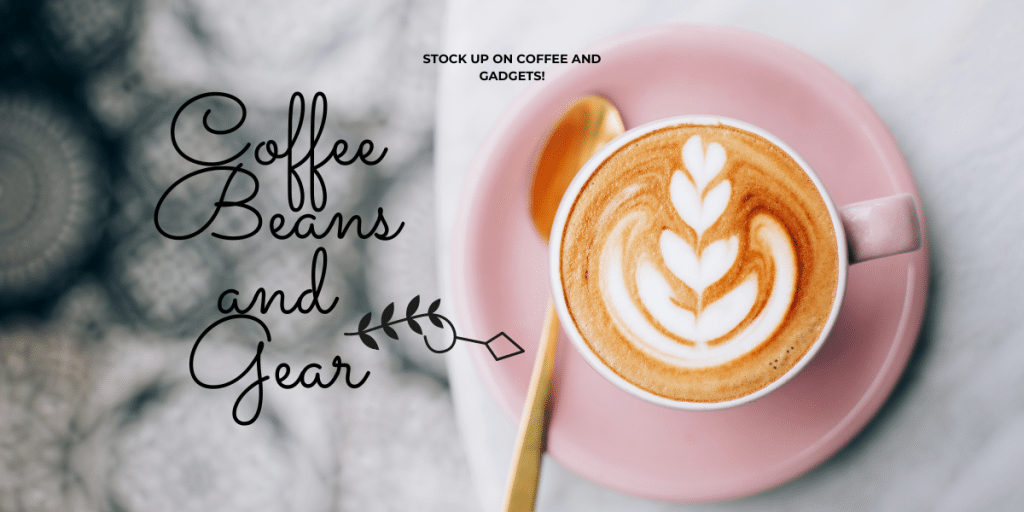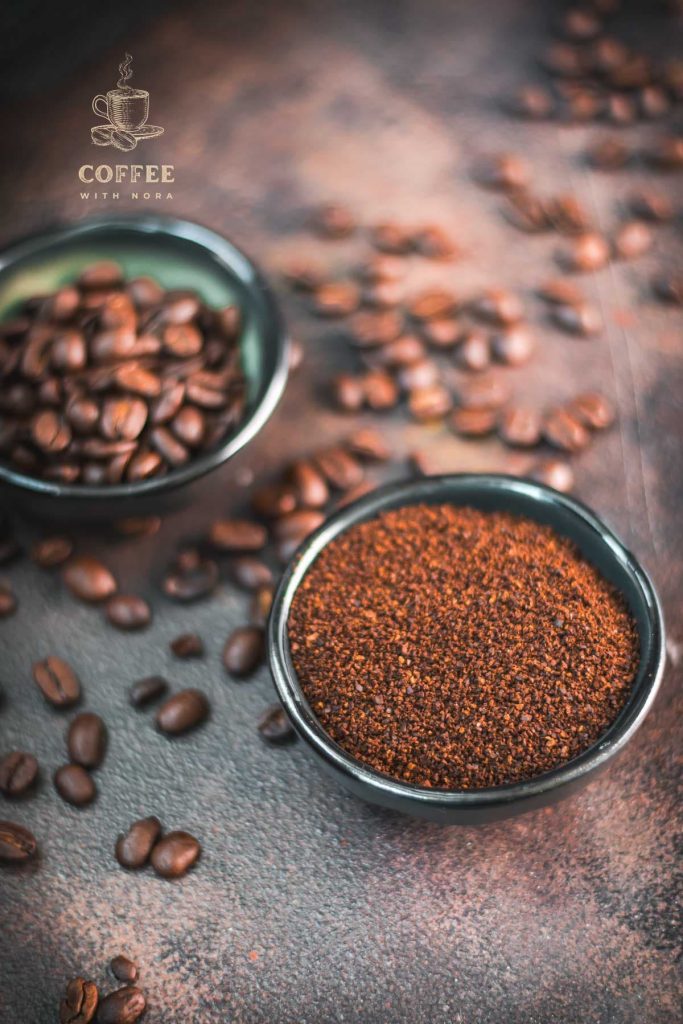Wandering the coffee aisle of your local grocery can be a lot, with so many flavor options, but before you can consider flavor, you must consider format. Find out what will save you more money with this delicious look at the price of whole-bean coffee versus ground coffee!

There are plenty of reasons to cut the daily trip to the cafe, but the cost is the most compelling. However, when you start brewing coffee at home, it’s only natural to wonder, what is the more affordable option: whole bean coffee or coffee grounds?
Let’s spill the beans and discover which of these coffee choices is the more economical option!
What Determines the Cost of Coffee?
Coffee is a multi-billion dollar industry that creates jobs and revenue around the world. Every step your coffee goes through, from seed to cup, has a price and that is passed on to you the consumer.
From the coffee farmers to the roasters and packagers, everyone along the coffee chain of supply must get paid, and profit margins for coffee growers are slim. One pound of green, unroasted coffee beans sells for anywhere between fifty cents and six dollars.
Roasting increases the value of the beans because it makes the beans into drinkable coffee. Due to the labor and equipment that go into roasting, the price of a pound of roasted beans still varies greatly. These variations are often based on the type and quality of coffee beans, the roasting company’s size, and the batch’s size.
Walking into your favorite cafe, buying a bag of beans, and asking to have it ground will not cost you extra. The baristas will be happy to grind the coffee in any setting; however, for some major coffee manufacturers, grinding beans is an extra step using an extra piece of equipment, potentially translating into another consumer cost.

Price of Ground Coffee
When asking for the price of coffee, there is no one set price. Coffee comes in a wide range of varieties. There are flavored coffees, single-origin coffees, and even blends of beans. However, most varieties of pre-ground coffee tend to be priced a little lower than their whole-bean counterparts.
Why is this? Freshness and functionality. Ground coffee begins to lose quality faster than whole beans because the beans are already cut and exposed to oxidation.
Additionally, pre-ground coffee is ground for a drip coffee brewer. This means you will only get the best results with ground coffee when using this brewing method. This can be limiting for anyone who loves their morning pour-over or French press.
Generally, one pound of ground coffee costs between $4 and $20 per pound.

Price of Whole Bean Coffee
Much like ground coffee, ground coffee comes in an array of flavors and styles that affect the final cost. Yet, whole bean coffee has one consistent characteristic that prices it slightly above ground coffee: freshness. Whole bean coffee stays fresher longer, sometimes resulting in it being priced higher than ground coffee.
Another factor affecting the price of whole-bean coffee is where you buy it. Some cafes will keep their beans at MSRP when sold in their cafes; whereas the same cafe may make a special blend for wholesale, and when it hits grocery shelves, it may sell at a lower price and even go on sale.
That said, the average price range for a 12 to 16-ounce bag of whole-bean coffee is between $8 and $26. Rare and exclusive single-origin beans sit at the top of the range because of their limited quantities and extreme quality. Mass-produced coffee blends rank at the bottom end of the prices.
Most home coffee connoisseurs will buy a bag somewhere in the middle of the price scale at about $15 per bag.
In many cases, grinding your whole coffee beans does not need to cost you any extra money! At most grocery stores and every cafe, a grinder is free to use for anyone purchasing coffee.

Cost to Keep Coffee
The money spent at the store is not the only expense around your coffee. You may need to invest in proper coffee storage and a coffee grinder. With these extra tools, you can be assured that every cup of brew at home is just as fresh and delicious as from your favorite cafe.
Since coffee loses its quality over time, and grinding speeds up the process, ideally you will store your coffee in whole bean format in a closed container. You must consider that coffee is gassy when choosing your storage container. Coffee releases CO2 gasses slowly over time, which is why every bag has a valve.
Give your beans room to breathe by keeping them in their original bag or a sealed container with a vent. Whole beans can be stored at room temperature for up to a year in the right conditions, whereas ground coffee in the same conditions will only last up to five months.
The other overlooked expense behind home brewing is the grinder. Investing in a home grinder allows you to keep your beans whole longer, and although whole beans cost more upfront, they tend to save you money over time. Plus, when you are fully equipped with beans and a grinder, you will likely waste less by only grinding what you need at that moment.
Ground coffee is a great choice for those without a grinder, but since most cafes and stores give you a chance to grind for free, even beginning home baristas can buy whole beans. However, if you buy whole beans and grind them at the store, consider buying smaller packages more often. That way, you still get the freshest flavor.
Value Over All: Beans vs. Ground
With all these factors buzzing in your mind, you might wonder who takes the crown.
Whole-bean coffee is clearly the better value over time when considering flavor, freshness, storage, and potential brewing methods. It will hold its freshness longer and allow you to brew your own way, including less expensive filterless brewing methods.



